Table of contents
Problem with Ancient and Medieval
Ancient and Medieval history are subjects that are unpredictable and have low returns on investment (ROI) in UPSC Prelims, making it a challenging task for UPSC aspirants to cover these two subjects efficiently without wasting time that could be better spent on other important subjects during the last couple of months before UPSC Prelims.
So what's the way out?
Choosing the Right Resources
Although aspirants consider different sources for these subjects, we do not recommend you change them at this point if you have already started. However, if you are clueless, you can follow these two sources.
Ancient India: A history text book for class 11th (NCERT)
Medieval India: A history text book for class 11th (NCERT)
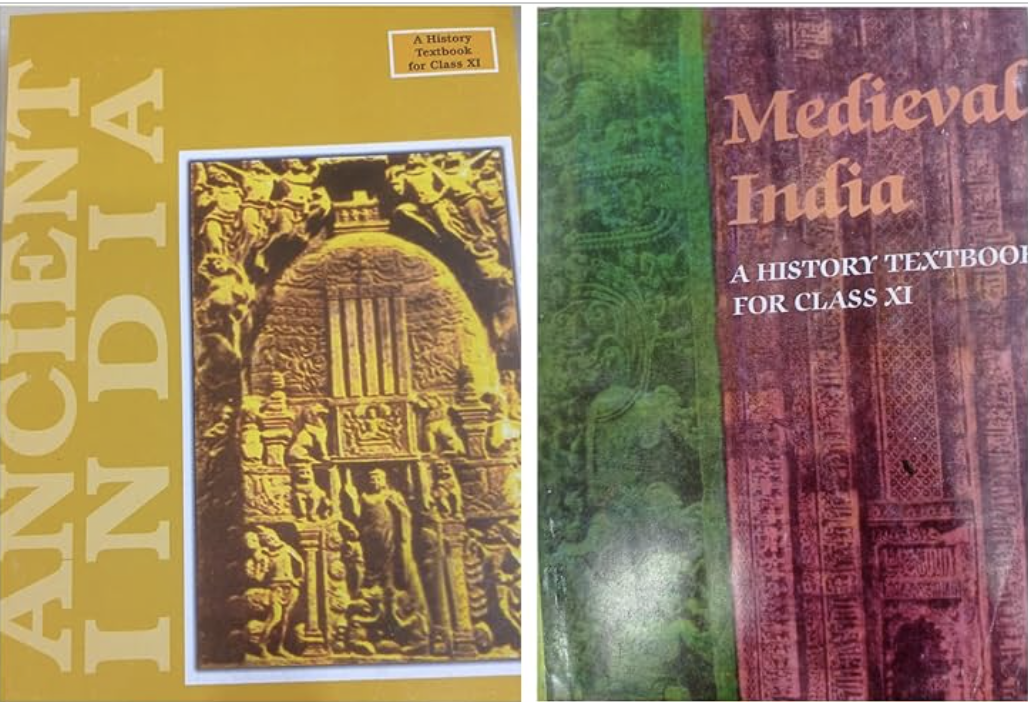
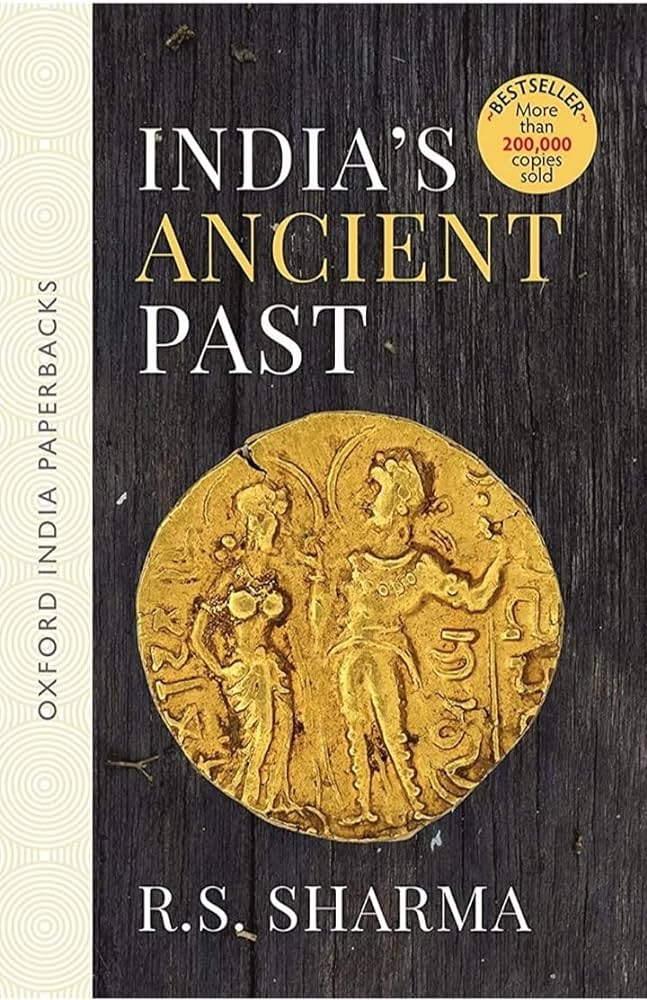
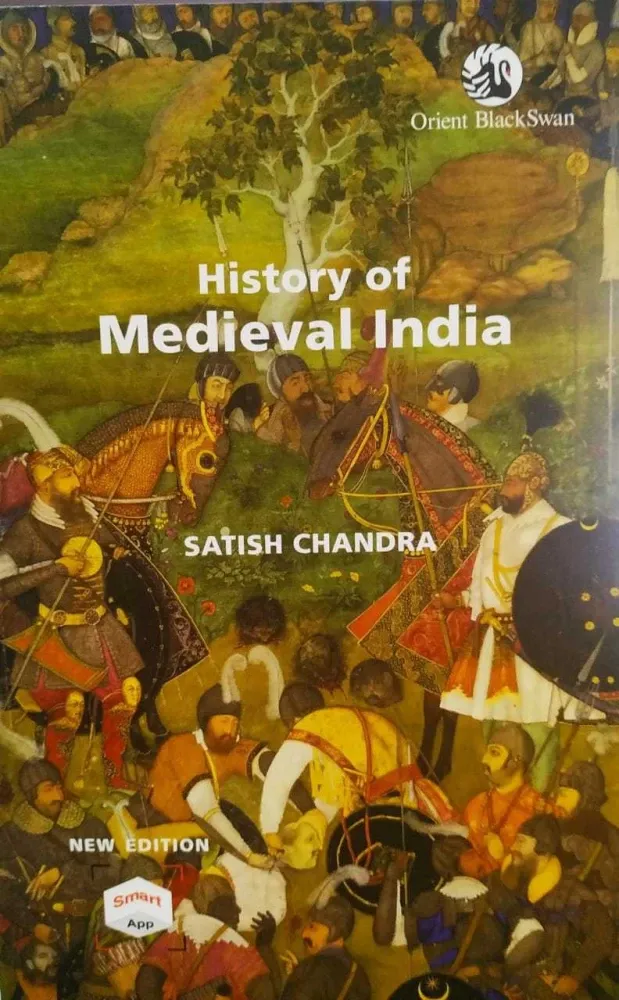
Breaking Down the Index
Our method involves a systematic analysis of the books' indexes, categorizing chapters based on their importance derived from previous years' questions (PYQs). Here's how we do it:
- Red Marked Chapters: These are your must-read chapters. They hold the essence of the periods and are frequently visited in exams.
- Blue Marked Chapters: Important, but second in priority. They provide additional context and are occasionally queried.
- Green Marked Chapters: These should be your last priority, offering background information that seldom makes its way into exams.
Important Topics from Ancient India
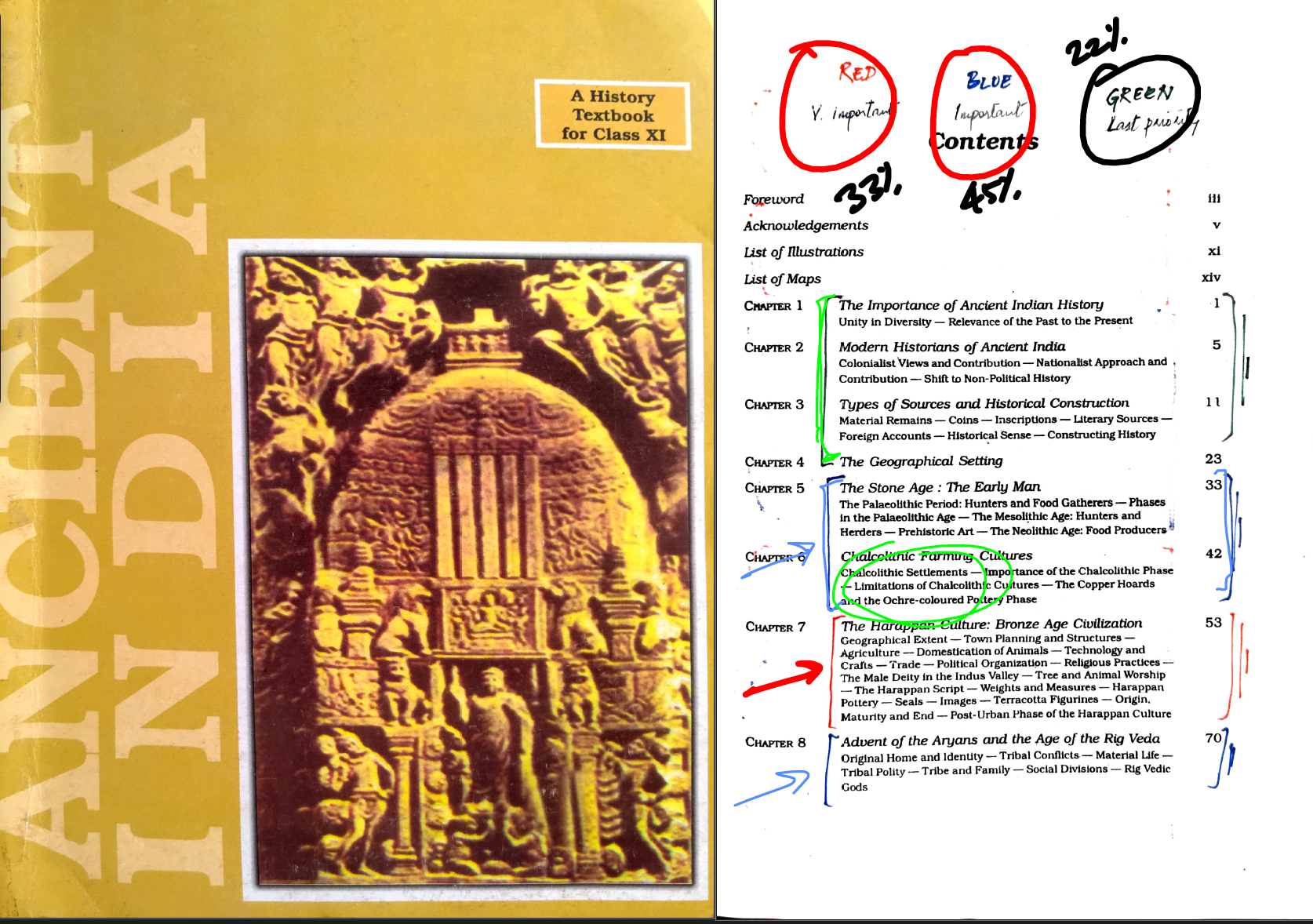
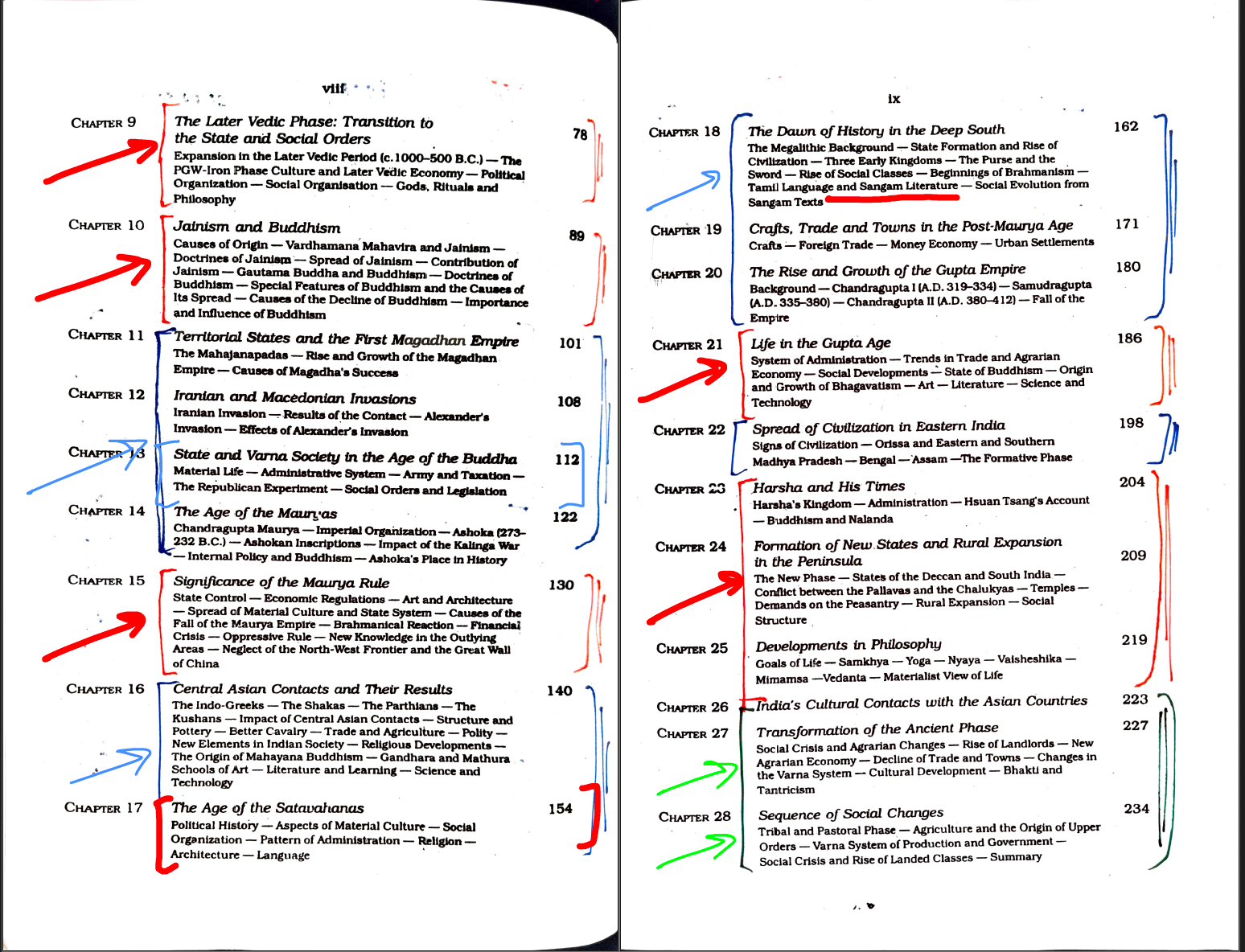
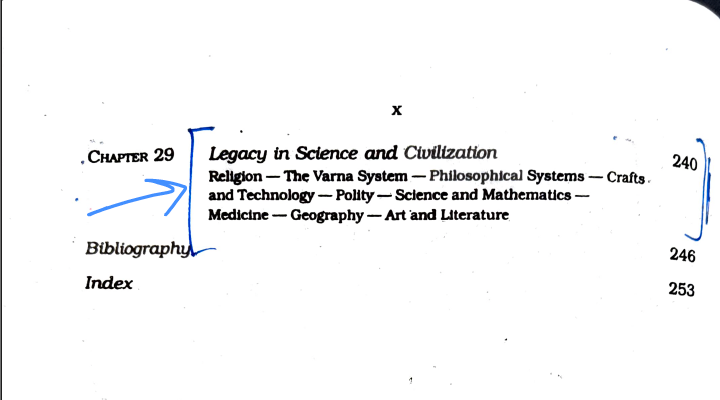
High Priority Topics - Ancient India
6. The Harappan Civilization
8. The Later Vedic Phase: Transition to State and Social Formation
9. Jainism and Buddhism
14. Significance of the Maurya Rule State Control
20. Life in the Gupta Age
22. Harsh and His Times
23. Formation of New States and Rural Expansion in the Peninsula
Medium Priority Topics - Ancient India
4. The Stone Age
5. The Stone-Copper Phase
7. Advent of the Aryans and the Age of the Rig Veda
10. Territorial States and the First Magadha Empire
12. State and Varna Society in the Age of the Buddha
13. The Age of the Mauryas
15. Central Asian Contacts and Their Results
16. The Age of the Satavahanas
17. The Dawn of History in the Deep South
18. Crafts, Trade and Towns in the Post-Mauryan Age.
19. The Rise and Growth of the Gupta Empire
27. Legacy in Science and Civilization
24. India's Cultural Contacts with the Asian Countries
Low Priority Topics - Ancient India
1. The Importance of Ancient Indian History
2. The Construction of Ancient Indian History
3. The Geographical Setting
11. Iranian and Macedonian Invasions
21. Spread of Civilization in Eastern India -
25. Transformation of the Ancient Phase
26. Sequence of Social Changes
Important Topics from Medieval India


High Priority Topics - Medieval India
3. South India: The Chola Empire (900–1200)
4. Economic and Social Life, Education and Religious Beliefs (800– 1200)
7. The Delhi Sultanate— (Circa 1300–1400)
8. Government, and Economic and Social Life under the Delhi Sultanate
9. The Age of Vijayanagara and the Bahmanids, and the Coming of the Portuguese (Circa 1350–1565)
11. Cultural Development in India (1200–1500)
13. Consolidation of the Mughal Empire Age of Akbar Early Phase—Contest with the Nobility (1556–67)
15. India in the First Half of the Seventeenth Century
16. Economic and Social Life under the Mughals
17. Cultural and Religious Developments
Medium Priority Topics - Medieval India
2. Northern India: Age of the Three Empires (800–1000)
6. The Delhi Sultanate—I (Circa 1200–1300)
7. The Delhi Sultanate— (Circa 1300–1400)
12. Struggle for Empire in North India—II Mughals and Afghans (1525–1555)
19. Climax and Disintegration of the Mughal Empire—II
Low Priority Topics - Medieval India
1. India and the World
5. The Age of Conflict (Circa 1000–1200)
10. Struggle for Empire in North India—I (Circa 1400–1525)
14. The Deccan and South India (Up to 1656)
15. India in the First Half of the Seventeenth Century
18. Climax and Disintegration of the Mughal Empire—I
19. Climax and Disintegration of the Mughal Empire—II
20. Assessment and Review
Just because we have marked some topics as red that does not mean that you avoid the low priority ones. It means that you don't worry about the green ones till you've done Reds and Blues
That's all we wanted to share today. All the best
